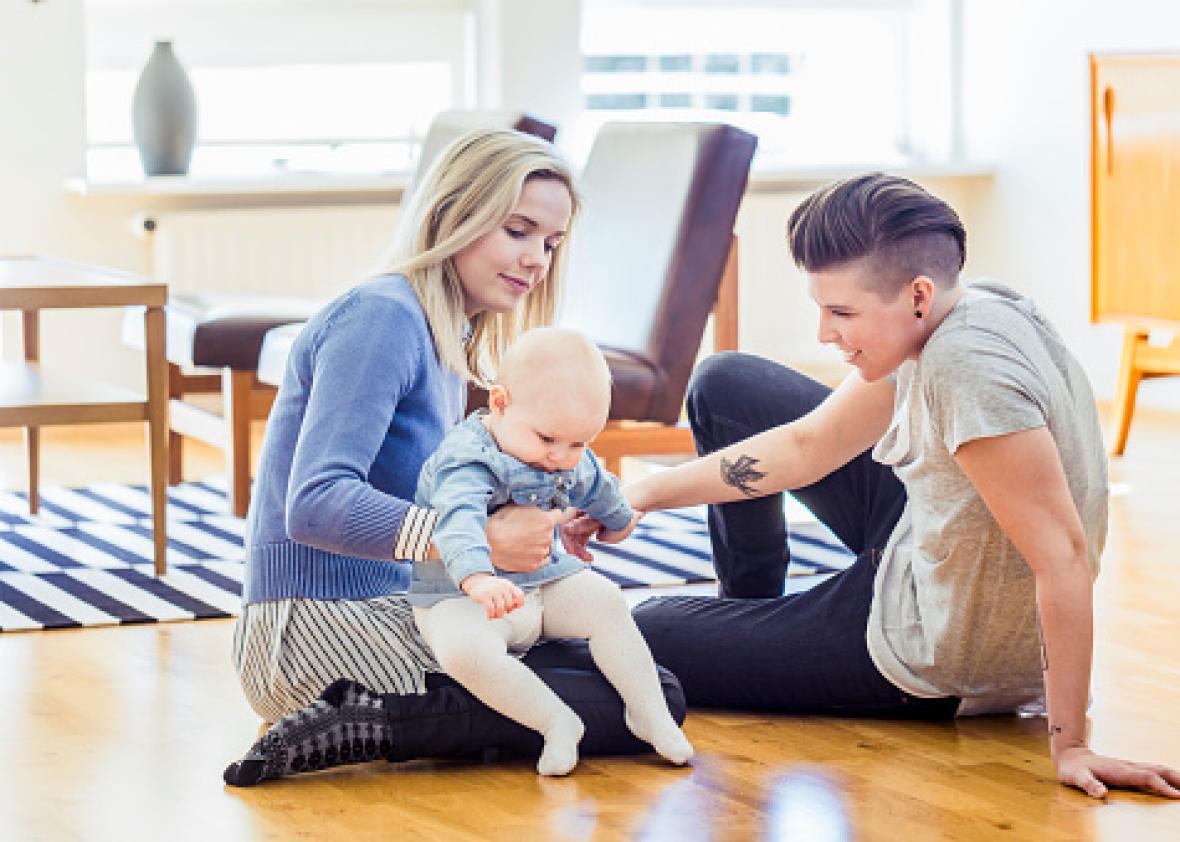The legal definition of a parent long required a mom or dad to have a biological or adoptive tie to a child. Other adults—no matter if they were there at delivery, referred to as “Mom” or “Dad” for years, packed lunches every morning, and kissed boo-boos on an as-needed basis—didn’t count. Without paperwork or shared DNA, they weren’t considered parents.
Now a new ruling from the New York State Court of Appeals challenges this thinking by expanding the definition of parent to include caretakers who are not related to, or a legal guardian of, a child or children. The old way of defining parents “has become unworkable when applied to increasingly varied familial relationships,” according to the court.
This is a reversal of a 25-year-old legal precedent in which only parents with a biological or adoptive tie to a child could seek custody or visitation rights. The recent ruling overturns that, stating that “where a petitioner proves by clear and convincing evidence that he or she has agreed with the biological parent of the child to conceive and raise the child as co-parents, the petitioner has presented sufficient evidence to achieve standing to seek custody and visitation of the child.” The court did not claim that nonadoptive, nonbiological parents who were not part of the decision to conceive a child shouldn’t have these rights; the defining of their legal position “is a matter left for another day, upon another record.”
The decision in New York was spurred by two cases, both involving disputes between lesbian couples about the custody of their children following separation. In both cases, the nonbiological and nonadoptive moms argued that they had acted as parents to the children and therefore deserved to be treated like such in court.
While gay families, along with those who support gay families, largely support a more expansive and inclusive definition of parent, there are some who oppose these rulings on the grounds that they could theoretically give anyone with a caretaking role in a child’s life, including friends and nannies, the right to fight for custody. But as long as our court system continues to make judgements based on what is in the best interest of a child, it’s hard to imagine how broadening our understanding of who is a parent could be much of a threat. If anything, a court that is relying on a more expansive definition of a parent would be better equipped to make the best possible decision for a child, as there would be more options to choose from. Expansions of parental rights for gay and lesbian parents have also passed in Delaware, New Jersey, Texas, and Colorado in recent years.
Another good reason to broaden the legal definition of parent is to offer fairer legal treatment of the many gay and lesbian parents who were unable to marry or adopt children together before Obergefell v. Hodges. As Anthony Michael Kreis explained in Slate earlier this month: “Before Obergefell, only 14 states clearly permitted both partners in a same-sex relationship to be legal parents by state law or judicial practice. Another 14 states did not have a uniform statewide practice, but a number of judges treated same-sex couples who wanted to co-parent favorably in some local courts.”
For Kreis, the fact that lesbian and gay parents still struggle to be recognized as parents in court represents “a stark reminder that the fight for equality continues even in a post-Obergefell world.” New York’s new ruling offers hope that our legal system is beginning to understand this as well.
